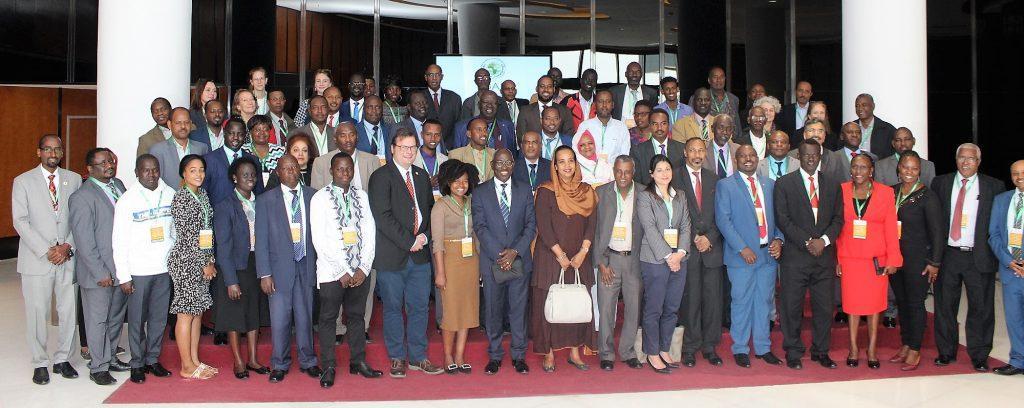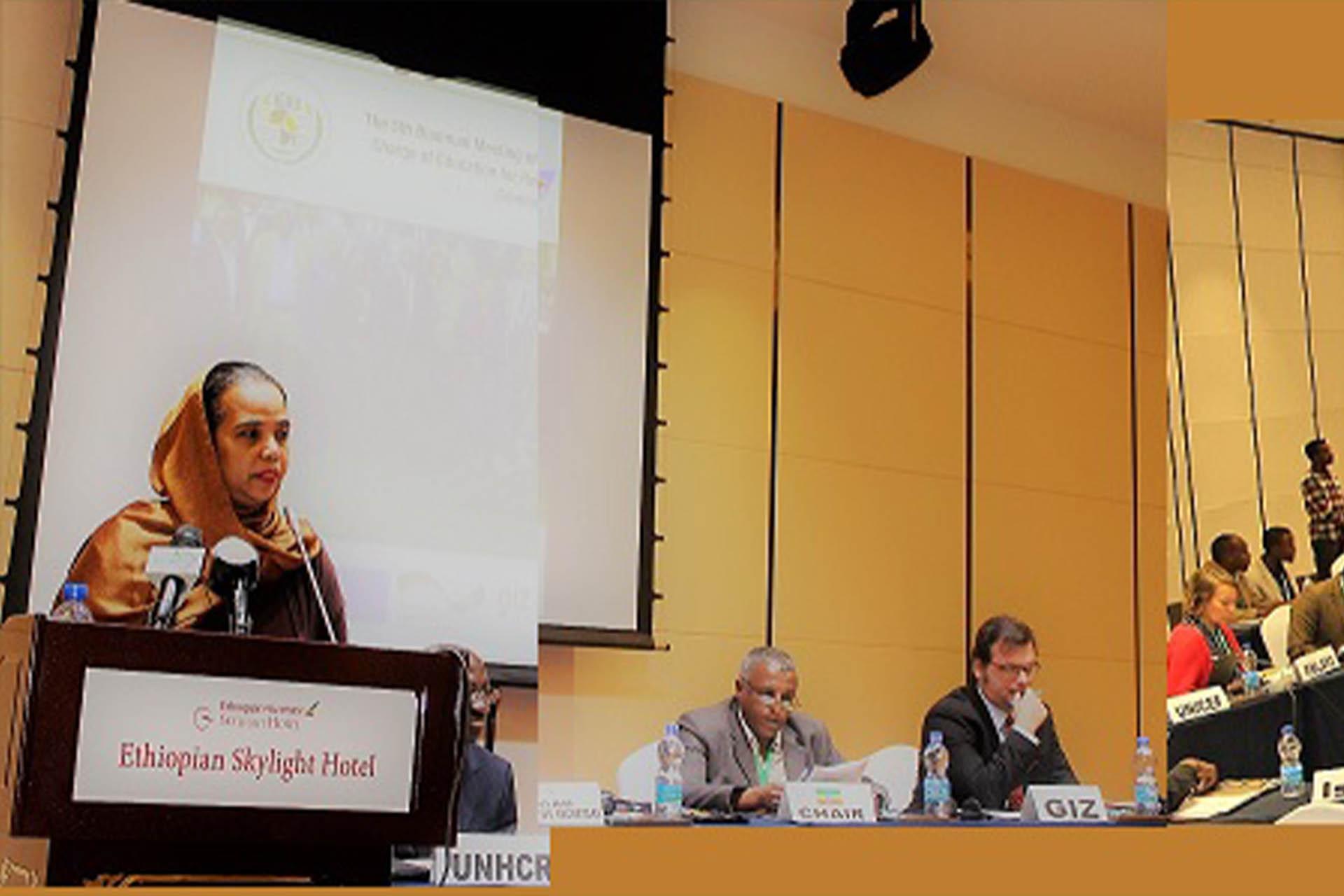
July 04, 2019 (ADDIS ABABA, Ethiopia): The Intergovernmental Authority on Development (IGAD) this morning inaugurated the ‘5th Biannual Meeting of Experts of Member States in Charge of Education for Refugees Returnees, and Host Communities’ in Addis Ababa.
This three-day experts and partners meeting is attended by Member States as follows:
- Ministries of Education
- General Education/ Education in emergencies
- Higher Education, Science & Technology, Technical and Vocational Education and Training;
- Refugee Management Agencies
- Ministry of Foreign Affairs/ Interior
- Representatives of Teachers in refugee settlements
- Representatives of Refugee Students
The Meeting is also expected to be attended by all core task force members (GIZ, EU, UNHCR, UNESCO, UNICEF, ECW, GPE, World Bank), the IGAD Development Partners Forum (IPF) and other partner agencies.
The meetings of experts and partners represent an important platform to engage on relevant themes, generate policy recommendations, and validate policy instruments, programs or plans of action before they are endorsed at ministerial level or at other higher levels. Therefore, this meeting of IGAD education experts and partners is part of the governance framework within which the different components of the education sector fit.
The Director of Health and Social Development of the Intergovernmental Authority on Development (IGAD), Ms Fathia A. Alwan, highlighted that ‘IGAD’s focus on education is based on the shared belief that education as a fundamental human right’. ‘Most importantly, refugees with quality education play significant role in peace-building, conflict resolution, and post-conflict reconstruction. They also provide skilled labour to their host communities,’ she added.
She further reminded the audience that the task in the next three days was ‘to take stock of the progress in the implementation of the Djibouti Declaration as well as to consolidate the National Education Response Plans (NERPs) of Member States’.
Representatives from the German Development Agency GIZ, UNHCR, the European Union, Education Cannot Wait ((ECW), and UNESCO took the floor before the Ethiopian guest of honour declared the conference open.
This experts and partners meeting aims to provide technical and expert advice on the promotion of inclusive quality education in the region in general and the speedy implementation of the Djibouti Declaration, in particular. The specific objectives of the 5th meeting are to:
- Assess the progress and status of implementation of the Djibouti Declaration and the Addis Ababa Call for Action during the first half of 2019;
- Share experiences and lessons learnt in developing the national education response plans (NERPs) by member states;
- Identify challenges and opportunities, including funding from international financial institutions and development/humanitarian education partners for refugees, returnees, IDPs and host communities; and
- Generate recommendations for the 3rd Conference of IGAD education ministers, scheduled for December 2019.
The meeting is supported by the German Government through the German Development Agency GIZ.
Background
The Djibouti Declaration on Refugee Declaration was adopted in December 2017.
The Djibouti Declaration emphasised on five key strategic interventions:
- Inclusion of refugees and returnees into national education systems with a multi-year costed plan of action;
- Higher Education and TVET/ post-secondary skills and competencies;
- Regional Qualifications Framework;
- Accreditation and Certification of Education;
- Resource Mobilization and Partnership.
In December 2018, the Second Conference of Ministers in charge of Education issued the Addis Ababa Call for Action which reiterated their commitments to the Djibouti Declaration. The Ministers of Education also adopted:
- The IGAD Regional Education Policy Framework
- The IGAD Regional TVET Strategy and
- The Consultative Process on the IGAD Regional Education Qualification Framework based on the preliminary draft initiated by IGAD.

